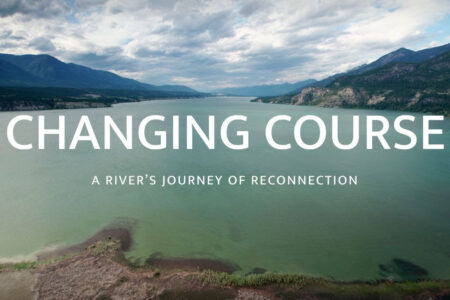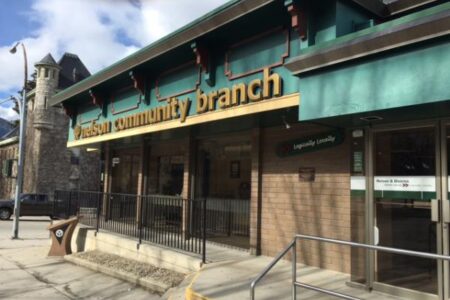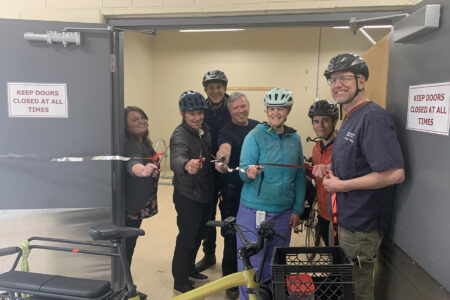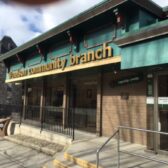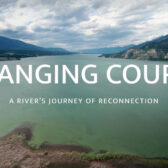Attitudes soften towards cultural tourism
By Timothy Schafer, The Nelson Daily
Severe cuts to the arts sector in Nelson and area and an influx of ‘new blood’ have overridden West Kootenay resident’s desire to be kept a ‘secret,’ says the cultural development officer for the City.
Joy Barrett said the demographic moving into Nelson in the last few years — younger people, many of them with families — has created an economy dependent on cultural tourism.
In order to stay in the region, many of them have to create a business or several businesses to support themselves, contributing to the ‘folksy’ nature of the economy.
As well, with dollars dwindling for the arts in the wake of repeated cuts from the provincial and federal governments, many established artists are looking towards the ever increasing stream of tourists as an alternate source of income.
As a result, the cultural economy that has arisen is overcoming a long-standing sentiment of protectionism — keeping the West Kootenay region a secret — and people are becoming more aware of the strong ties between cultural tourism and the local economy.
And it’s a huge economic driver, said Barrett.
“Many artists say, ‘I’d like to increase that (tourism) market because these are the people that will pay my prices. The locals won’t pay my prices,'” she said.
“It would be wonderful within a city of 10,000 if there were enough people buying the art work or going to the theatre, but that is not necessarily the reality.”
People are now looking for those outside drivers and that is why the Cultural Tourism Strategy report released Monday received such a positive reaction, said Barrett.
The strategy was created to identify new tourism opportunities in existing markets, and establish a steering committee for people who want to enhance cultural tourism in the region, through the Nelson and Kootenay Lake destination marketing organization (DMO).
Cultural tourism has been happening for years, said Barrett, as people traveled to a location in search of that place’s culture, discovering aspects about the area that made it unique.
Culture isn’t defined solely by museums, art galleries and theatre, she added. People come to Nelson for eco-friendly restaurants, spas and outdoor activities.
“And then there is the unique Nelson ‘vibe,’ whatever the definition of that unique vibe is,” said Barrett. “We are still tossing that around in the DMO.”
Through a study on the economic impact of the arts, released three years ago, it is known that restaurants and shops in the area are already receiving significant benefit from this movement in tourism.
The strategy is expected to grow this activity, said Barrett, increase the number of visitors to the area, keep them here for a longer period of time, and increase what they spend, all through incremental steps laid out in the strategy.
“Our carrot that we are holding out is the culture of the region,” she said.
“But, above all, we must be true to our community. There is no point in creating culture solely for the purpose of enticing tourists to come and view it. This would be an unauthentic experience.”
Instead, a strategy has to build on what the region already possesses through partnerships of existing groups and organizations, conserving and preserving the culture as well.
“There is a core group of cultural businesses and organizations that are ready to engage in that sort of collaborative marketing and make that commitment,” said Coun. Donna Macdonald, city council’s representative on the DMO.
But some of the communities need to be better prepared. In Nelson, the lack of public washrooms downtown and the dog bylaw on Baker Street were cited as hurdles to tourism, as was the absence of a signature event.
With the target market likely being the Baby Boom generation, year-round, region-wide artist studio tours off of the Selkirk Loop were seen as an incentive.
Coun. Macdonald said this type of cultural activity is a big draw for tourists that are exploring the area by car, particularly an older generation.
“These tend to be the people with more disposable income and these tend to be the people who would stay longer in an area because they are not tied to school days or vacation days,” she said.
”If they enjoy it, they will stay for a few more days.”
The steering committee will function as an advisory committee to the DMO. The first meeting of steering committee to begin implementation of strategy is Friday, Sept. 24.
editor@thenelsondaily.com



